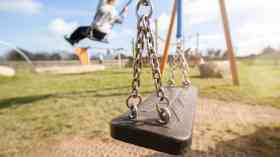
Time to review your waste management process
There are new recycling regulations coming into force in 2025 which will affect schools. As well as reviewing their recycling processes to ensure compliance, schools should also access their waste management overall to see where efficiencies and cost savings can be made
The government has established new regulations to make recycling simpler and more standardised. This means the same set of materials will be collected everywhere in England – whether at home, work or school.
The changes were established to try and simplify the “muddled and confusing patchwork of approaches to bin collections” and also to reduce and standardise the amount of bins that are needed. The changes come into effect on 31 March 2025. Schools will need to separate food and general waste from dry recyclable items, if they do not do so already.
Dry recycling materials include glass, metal, plastic, paper, and cardboard.
Food waste that is separated will need to be put in a specific food waste container.
According to the DfE’s Buying for Schools blog, schools can use the same bin for dry mixed recycling of glass, metal, plastic, paper and cardboard. This means that schools will need a minimum of three waste containers (bins, boxes or bags); one for general waste, one for food waste, and one for mixed dry recycling items listed above.
At the moment, the regulations do not include recycling garden waste and plastic film.
Getting ready for the deadline
Schools should ensure they have the appropriate bins and enough of them before the deadline.
They could be colour coded and labelled so that everyone can easily identify which bin is for what waste stream.
Staff and pupils should be told about the new regulations, and why it is important to recycle properly. Signage, posters and guidelines on what needs to be recycled and in what bin is also recommended.
If a school is already separating and recycling food waste, they should still assess their current practices to ensure they comply with the new recycling regulations. Schools should also check their commercial waste collection services and licensed waste carriers adhere to the new regulations. These changes should help schools with their sustainability targets by increasing recycling rates and reducing the amount of waste it sends to landfill.
Why landfill is bad
We know that landfill is bad, but why? Landfill is a piece of land that is used to dump waste, but that waste will essentially stay there forever. It’s unsustainable as we can’t keep filling it up. Not only does landfill produce foul smells, the decomposing of waste can also produce highly flammable gases, such as methane, which creates a dangerous situation.
Landfill is also a large producer of greenhouse gases and therefore, a large contributor to global warming and the climate crisis.
Lots of materials that are disposed of in landfill take a very long time to decompose. However, food waste that gets caught up in landfill also takes longer to decompose, because it does not have access to enough oxygen due to the other materials in with it.
Waste in landfill also produces leachate, a liquid that runs through waste. This leachate ends up in the environment, gets into water supplies and threatens the local environment.
Recycling of electrical goods
Electrical equipment, like old computers, laptops, printers and servers, should never be sent to landfill. Not only is this bad for the environment, it also posts a security risk if data hasn’t been wiped properly. All education establishments must comply with the WEEE directive, and ensure they recycle their electrical equipment in a compliant manner.
Schools should also consider whether they can donate or sell old electrical equipment.
Conduct a waste management audit
To improve waste management processes, schools should conduct a waste audit to help identify what waste is produced and in what quantities. It should include an assessment of the amount of bins in the school premises and whether they are in the right locations. Although messy, an examination of what’s in the bins will help a school understand the waste it produces.
Schools should examine their current waste collection arrangements, making a note of the frequency and whether or not the bins are too full – or not full enough – each time.
The monthly cost of waste disposal should be identified, including examining where there are large quantities of waste and high costs.
Crucially, schools should look to minimise the waste they produce. Paper could be reduced by printing less and increasing digital interactions. Banning single-use plastics, such as plastic bags, straws, bottles and food packaging, is an effective way of drastically reducing plastic waste.
Food waste is a major problem in schools, accounting for around 55,408 tonnes of food annually. To reduce this, schools should examine if they are serving portions that are too big, or if there are particular items on the menu that are not enjoyed. Schools could implement a pre-selection system where parents pick meals in advance so catering teams can prepare the right amounts. Schools can also set up food sharing programmes, if they have a surplus.
The new recycling regulations coming into force on 31 March 2025 provide a good opportunity for schools to review both their waste management and recycling processes, to ensure compliance as well as efficiency.
Latest News
04/11/2025 - 09:55
The policy introduces the new Chief Regulator’s Rebuke - a new tool which can be used when an awarding organisation is found to have breached rules, but not in a way that warrants a financial penalty.
03/11/2025 - 10:04
The government has launched a new campaign supported by Sport England that aims to help parents discover simple ways to build movement into daily life during the winter months.
03/11/2025 - 09:55
Nearly eight in ten UK teachers have had to rethink how they set assignments because of Artificial Intelligence (AI), according to a new British Council survey.
31/10/2025 - 10:12
A growing number of UK children are now eligible for Free School Meals (FSM), yet most still aren’t taking advantage of them on a daily basis, new research reveals.
30/10/2025 - 01:28
In the wake of the Raac crisis, the DfE spent £5 million on research into the condition of school buildings, which is due to conclude in spring 2026.







